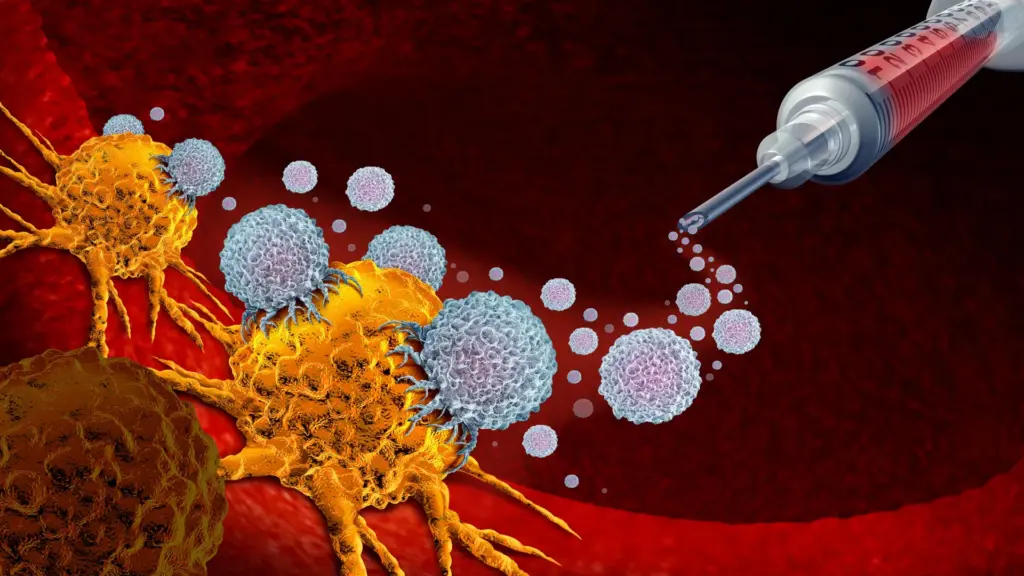A groundbreaking study published in Nature Biomedical Engineering has revealed a potential game-changer in cancer treatment. Researchers at the University of Florida have developed a novel mRNA vaccine that, when combined with existing immunotherapy drugs, triggers a powerful antitumor response. This isn’t your typical targeted therapy; instead, this vaccine works by broadly boosting the immune system, essentially teaching it to recognize and attack cancerous cells like it would a virus.
The implications are vast, offering a potential alternative to traditional treatments like surgery, radiation, and chemotherapy, especially for aggressive, treatment-resistant tumors. This innovative approach could lead to a universal cancer vaccine, a holy grail in oncology research for decades.
What Happened? 📝
The researchers combined a generalized mRNA vaccine with immune checkpoint inhibitors, a class of drugs already used in cancer treatment. The vaccine, similar in technology to the COVID-19 mRNA vaccines, wasn’t designed to target a specific cancer protein. Instead, it stimulated the expression of PD-L1 within tumors, making them more visible and vulnerable to the immune system. This unexpected finding challenges the conventional wisdom in cancer vaccine development.
Importantly, the study showed promising results in mouse models of various cancers, including melanoma, skin, bone, and brain cancers. In some cases, tumors were completely eliminated using the mRNA vaccine alone. The researchers observed that the vaccine activated T cells, a crucial component of the immune system, to multiply and effectively target cancer cells.
How Does it Work? 🤔
Messenger RNA (mRNA) is the blueprint for protein production found within every cell, including tumor cells. The vaccine utilizes lipid nanoparticles to deliver mRNA into the body, prompting the immune system to recognize and attack cancer cells. Unlike traditional cancer vaccines that target specific tumor proteins, this vaccine works by broadly enhancing the immune response.
The study highlights a “third paradigm” in cancer vaccine development. Previously, the focus was either on finding a universal target protein expressed in many cancers or creating personalized vaccines tailored to individual patients’ tumors. This new approach focuses on stimulating a general immune response, making it potentially applicable to a wide range of cancers.
The Significance of the Findings ✨
The success of this generalized mRNA vaccine has significant implications for cancer treatment. It offers a potential universal approach, unlike targeted therapies that only work against specific cancer types. This could lead to an “off-the-shelf” cancer vaccine, readily available to treat various cancers, regardless of their specific mutations or proteins.
The study’s findings could revolutionize cancer care, part of a new wave of biological treatments that includes innovations like the bacteria-and-virus therapy known as CAPPSID.. This could be particularly beneficial for patients with aggressive, treatment-resistant cancers that currently have limited treatment options. The combination with immune checkpoint inhibitors further enhances the effectiveness of the treatment.
The Technology Behind the Breakthrough 🔬
The researchers have been pioneering the use of lipid nanoparticles and mRNA in anticancer vaccines for over eight years. This technology, similar to that used in COVID-19 vaccines, allows for the efficient delivery of mRNA into cells, triggering a robust immune response. The mRNA vaccine in this study wasn’t targeted at a specific cancer protein but rather designed to broadly stimulate the immune system.
This approach builds upon previous breakthroughs in the same lab, including a successful human clinical trial using a personalized mRNA vaccine against glioblastoma, an aggressive brain tumor. The current study extends this success by demonstrating the potential of a generalized mRNA vaccine, applicable to a wider range of cancers.
Key Takeaways 🔑
- A novel mRNA vaccine, similar in technology to COVID-19 vaccines, shows promise in triggering a strong antitumor response.
- The vaccine works by broadly boosting the immune system, rather than targeting specific cancer proteins.
- Promising results were observed in mouse models of various cancers, including melanoma, skin, bone, and brain cancers.
- This approach offers a potential “third paradigm” in cancer vaccine development, leading to a potentially universal cancer vaccine.
- The researchers are working to advance the vaccine’s formulation and move towards human clinical trials.
This revolutionary research represents a significant leap forward in cancer treatment. While further research and clinical trials are necessary, the potential for a universal cancer vaccine holds immense promise for improving the lives of countless cancer patients worldwide. The future of cancer treatment may be significantly shaped by this groundbreaking discovery.



